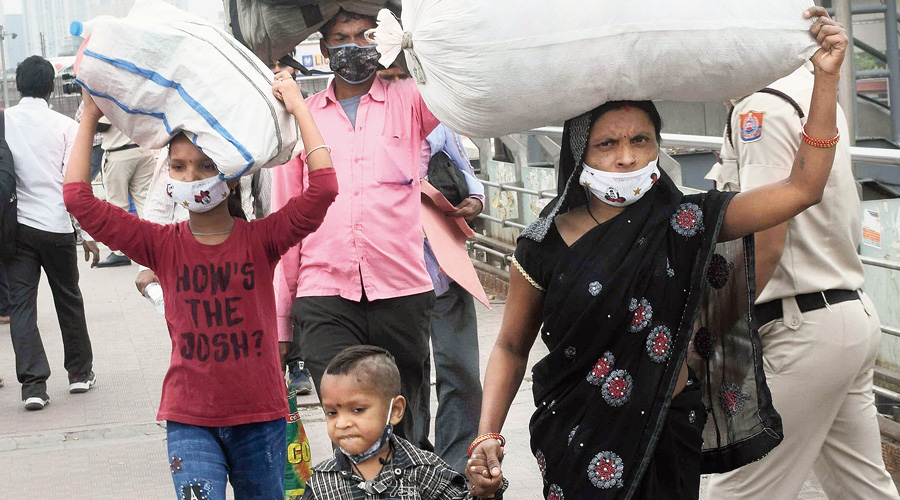The Ranchi district administration on Friday notified areas putting migrants under seven day institutional quarantine, to follow directives from state government as part of its heightened surveillance for early detection, tracking and testing of suspected Covid-19 patients to curb the transmission chain.
Deputy commissioner Chhavi Ranjan after inspecting Hatia, Ranchi railway stations and mega sports complex in Hotwar said that they have worked out an elaborate plan to ensure that all incoming migrants are scanned properly and channelised towards earmarked quarantine centres as per the new protocols.
Ranjan said that migrants residing in urban and rural areas will be put up separately for better monitoring and surveillance. Those who aren’t from Ranchi district will be brought through government sponsored buses to their respective districts upon arriving at railway stations from different states where respective district administrations will test and put them in quarantine centres locally.
“Migrants hailing from urban parts of the capital will be put up at the facility set up at mega sports complex in Khelgaon. Those who live in rural areas will be kept at the quarantine centre prepared at their respective blocks,” he said.
Explaining the flowchart of handling migrants, Ranjan said, “After alighting at the railway station, migrants will be directed to a waiting area where their registration will be done to know their place of residence. There, we shall try to arrange basic facilities like refreshments, water etc as much as possible. Buses will take them to respective districts. Those belonging to Ranchi after segregation will be taken to mega sports complexes or respective block level quarantine centres. There, they will undergo a RAT test and will be kept under quarantine irrespective of the results for seven days.”
After seven days, another round of RAT testing of the migrants will be done. In case if anyone tests positive, he/she will be sent for home isolation/institutional care as per the advice of health department protocols while people testing negative can go home.
Area specific magistrates have been notified for smooth coordination of the entire process. Ranjan after inspecting railway station and mega sports complex arenas assured that all of them will be equipped with required amenities to ensure hassle-free stay for migrants.
A similar standard operating procedure was adopted during the first wave, but all the quarantine centres in the state were virtually dismantled as cases dipped. Since March end, the second wave became much more virulent infecting and killing people at an exponential rate than the previous wave. Even though the state government returned back to partial lockdown since April 22 to curb the transmission but unchecked movement of migrants from other hotspots back to their villages led to spread of the virus in hinterlands of the state, which has now emerged as a greater challenge to control.











